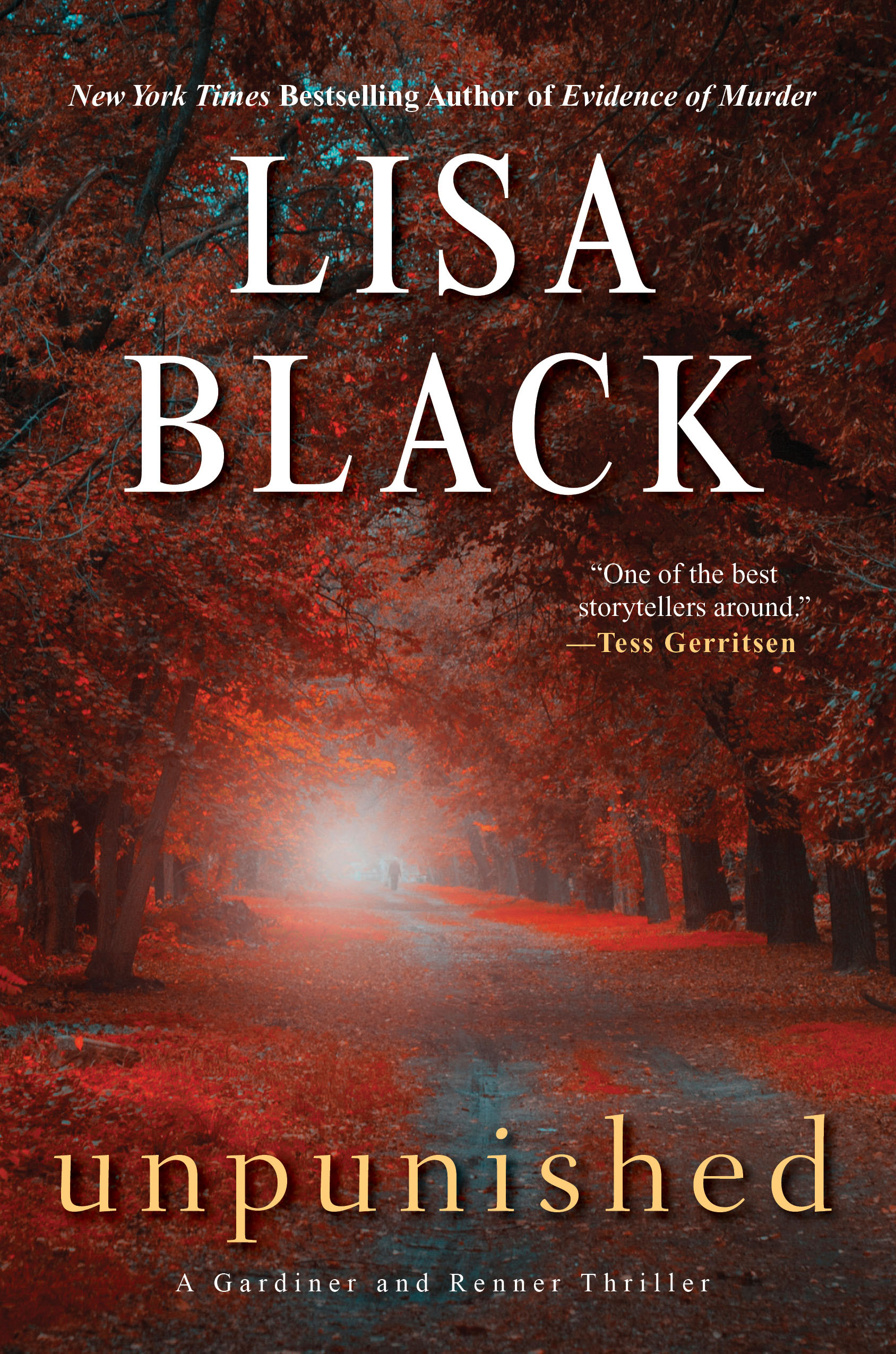Posted on Jan 31, 2017 by
Nick
This week on The Scariest Part, my guest is author Lisa Black, whose new novel is Unpunished. Here is the publisher’s description:
Maggie Gardiner, a forensic expert who studies the dead, and Jack Renner, a homicide cop who stalks the living, form an uneasy partnership to solve a series of murders in this powerful new thriller by the bestselling author of That Darkness.
It begins with the kind of bizarre death that makes headlines — literally. A copy editor at the Cleveland Herald is found hanging above the grinding wheels of the newspaper assembly line. Forensic investigator Maggie Gardiner has her suspicions about this apparent suicide inside the tsunami of tensions that is the news industry today — and when the evidence suggests murder, Maggie has no choice but to place her trust in the one person she doesn’t trust at all….
Jack Renner is a killer with a conscience, a vigilante with his own code of honor. He has only one problem: Maggie knows his secret. She insists he enforce the law, not subvert it. But when more newspaper employees are slain, Jack may be the only person who can help Maggie unmask the killer — even if Jack is still checking names off his own private list.
And now, let’s hear what the scariest part was for Lisa Black:
The ostensibly scariest part of Unpunished occurs when Maggie finds herself in a darkened, isolated area of a large factory-like setting with a man she now realizes could be a multiple murderer. But the physical situation is the simple part; the truly unsettling aspect lies in the internal debate. What to do? Scream for help (unlikely to be helpful anyway) and then be unable to explain why if it arrives? She’d look like an idiot. Attack first — but if she’s wrong then this perfectly innocent, nice man will want to know why an apparently sensible grown woman suddenly threw a hissy fit to rival that of a freaked-out housecat. She’d look like an idiot. Do nothing to avoid guessing wrong, and wind up horribly murdered because she didn’t want to make a fuss. She’d feel like an idiot, though it wouldn’t matter much at that point because she’d be freakin’ dead. Stand there and debate it some more while he sharpens up his knives and locks the door?
It’s a dilemma.
It takes us decades to learn to trust our instincts, years of repeated warnings to listen to our inner voices — if you see something say something, etc. — and still the natural inclination is to hesitate. We’d feel terrible if we made a mistake. We’d feel terrible if we hurt someone’s feelings. Almost as bad as we’d feel if they plunged a knife into our torso and spilled our intestines onto the floor.
Anyway that’s one part of the book. But what I find much more scary than this particular scene is the overall arc of the series and its effect on Maggie’s life. In the first book — spoiler alert — she kills someone. Not with much aforethought but with definite malice. She could blame it on shock, trauma, fear (though not self-defense), but she knows that those are unworthy excuses. She knows what she did and isn’t exactly sorry…but every day more comes to realize that her life has irretrievably changed. She can’t tell anyone, obviously — that would not only risk incarceration but the loss of her career as a forensic scientist, which pretty much is her life. She can’t tell her friends, she can’t tell her only sibling, a brother to whom she’s been very close since the death of their parents. She’s not remotely tempted to tell her ex-husband, just as well since he’s a homicide detective. It must be like losing a limb — you forget, momentarily, and then at some point in the day you move to pick up a glass with a hand that’s no longer there and run smack into a wall of oh yeah, I can’t do that any more. There will forever be a wall between her and other people. She can’t have a drunken night out with the girls, or whispered conversations with a lover. She will have to think before she speaks for the rest of her life, always parsing her words, monitoring herself for a slip. She escaped justice only to give herself a life sentence.
And that’s what I find scary. That one decision could affect every minute of every day for the rest of our lives. One wrong (or right) impulse, a momentary distraction, an unanswered phone call, and our happy little lives could dissipate before our eyes like the wisp of smoke after a trigger pull.
Lisa Black: Website / Twitter
Unpunished: Amazon / Barnes & Noble / Powell’s / IndieBound
Lisa Black has spent over twenty years in forensic science, first at the coroner’s office in Cleveland, Ohio and now as a certified latent print examiner and CSI at a Florida police department. Her books have been translated into six languages, one reached the NYT Bestseller’s List and one has been optioned for film and a possible TV series.
 Weird Detective by Fred Van Lente
Weird Detective by Fred Van Lente



